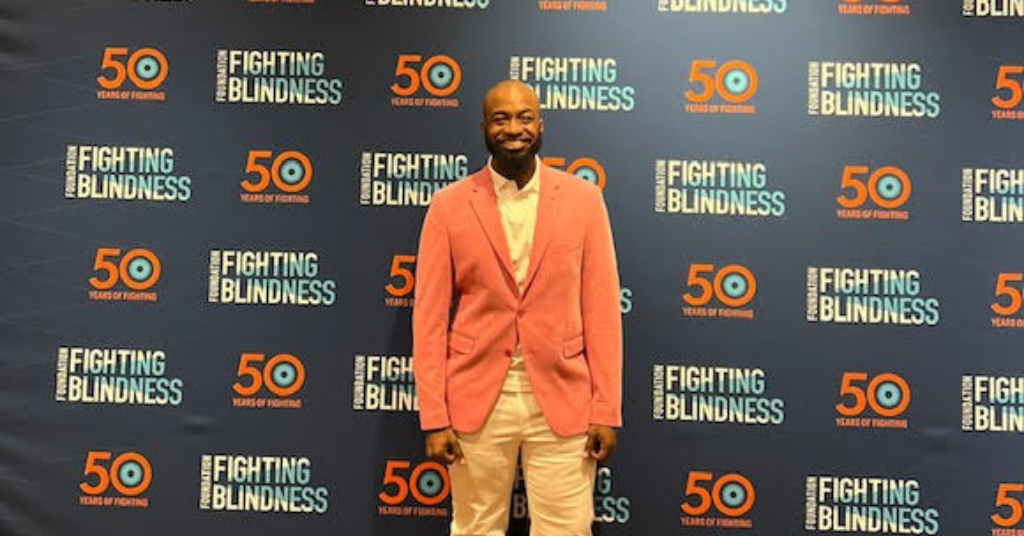
How my hearing aids survived a pool party
March 2, 2017
World Hearing Day: Unaddressed hearing loss costs nearly $750 billion globally
March 3, 2017#HearingLossHour: Shopping with Hearing Loss

Facilitated by one of our Hearing Like Me bloggers, and supported by Phonak, #Hearinglosshour is a live Twitter chat devoted to discussions about living with hearing loss. It takes place in real time between 1 p.m. and 2 p.m. (GMT) on the first Wednesday of each month.
This month’s topic was ‘Hearing Loss, Shopping and Accessibility,’ and people new to the subject of hearing loss might be shocked at what tweeters had to say about shopping.
Walking out of stores without making a purchase because the music’s too loud, shopping online even though actually seeing and handling the goods first is preferred, and dealing with staff who don’t know how to use a hearing loop, came up as issues.
It’s all in a day’s shop – or not – for today’s deafies.
Here’s a summary of what you may have missed:
Shopping’s one of those ‘Marmite’ subjects: you either love it or hate it but, for some shoppers, there may be good reasons for them to dislike of shopping in certain stores – and that’s due to excessive background noise and lack of accessibility. So, what can be done to make shops more accessible?
Question 1: Does your hearing loss affect your shopping?
- “Yes. I leave noisy shops.”
- “I find music often v plinky and painful even if not ‘loud’. I turn HAs off for silence in shops.”
- “Yes. I cannot hear, or carry on a conversation in most stores.”
- “Hard to hear in a crowded food court, but I generally don’t have problems in individual stores.”
- “I’m with you on this one, music does affect having conversations.”
- “Yes, it is harder to shop when there is loud background music.”
- “It doesn’t always, but if trying to have a conversation with someone in a noisy shop it’s not very nice.”
- ” I often shop online. Sometimes collect in store.”
- “It can be really loud in some stores too and if they have high ceilings and hard floors it can make it harder.”
- “Only [have] a mild loss, but the music in shops, and noise from the sheer amount of people can make it frustrating.”
- “TBH I shop in shops as little as possible. Husband does food shopping.”
- “Yes especially in book shops and card shops where I am trying to deal with 2 sets of “vocals”. Music is usually vocal. Why?”
- “Clothes shops are usually the only places I have real trouble in.”
- “I find supermarkets are busy and all I can ever hear is constant beeps from the checkouts & announcements.”
- “The big box stores with too high ceilings, and dozens of aisles.”
- “Sports shops do loud music, and for the same, but more obvious reason, HMV, that’s a hard place to shop.”
- “I definitely struggle more in the large shopping centres.”
- “I usually do most research of products online first!”
- “I would be interested to find out how many staff end up with noise-induced hearing loss when older.”
- “Shops don’t realise how much they lose playing music. Profits at some stores have increased since they switched off.”
- “Clothes shops and supermarkets are bad with their music.”
- “Yeah, I just walk by and never go in because the music is so loud!”
According to our tweeters, the biggest barrier to access in shops for people with hearing loss is excessive background noise or music with vocals. This is exacerbated by the acoustics in shops with high ceilings and hard surfaces.
There is also concern for the potential for environmental damage to hearing for staff exposed to excessive noise for prolonged periods.
People with hearing loss are voting with their feet – and their wallets – due to shockingly poor access in some stores, saying they would choose not to shop at a store if it is not accessible.
Question 2: How often do you use hearing loops at checkouts and do they help?
- “I never use them because they hardly ever work! (Plus, my new hearing aids don’t have that option.)”
- “My daughter doesn’t have her T function on so don’t use it.”
- “I can’t use hearing loops as they don’t work for me.”
- “They either don’t work, or mike picks up coffee machine etc & renders them useless.
Only effective ones are in churches.” - “I keep being told that I am the only one who uses them. Can’t be right, surely!”
- “Problem! I am told only me uses loop. Perceived need is low. People with hearing loss need to raise awareness.”
- “I tend to shop late while daughter is at gym so rarely bother with supermarket loops as it’s quiet.”
- “Someone needs to know: what they are, how to switch them on and where to stand.” (Regarding staff training/usage of loops.)
- “I doubt any stores here would have one. Even the cinema doesn’t.” (US tweeter.)
- “There r loops in grocery stores in the UK?!! Really? That’s a great step forward. But I know not everyone can access them.” (Australian tweeter.)
- “I do have a Roger Pen that I can use if needed.”
According to our tweeters, most people don’t have the Telecoil in their hearing aid activated so are not able to/interested in using loops. This is a commonly raised issue when discussing hearing loops in the UK – as is a lack of staff training.
Reducing background noise was seen as a more helpful way to improve accessibility for people with hearing loss than the introduction of hearing loops at cash registers. This makes sense as there are places other than the checkout where you may want to speak to someone and understand their reply.
Read more: What is a hearing loop?
Read more: How do I know if my hearing aids have a Telecoil?
Read more: What is a portable loop?
Question 3: What improvements would make shopping more accessible to you?
- “Turn the music down, staff deaf awareness training, good lighting, visual signage.”
- “And be given more Deaf Awareness training. SO much more can be done about it!”
- “It’s always brought up, but for staff members to communicate properly with the individuals preferred needs.”
- “Supermarkets should hold quiet times for deaf shoppers too.
- “Employees who are allowed the time to carry on a written conversation, rather than spoken.”
- “Pharmacies should have text notifications for when prescriptions are done vs calling them out on intercom.”
- “Less noise! Better trained staff. Hearing loops.”
- “Turning music right down (preferably off!) If they insist on playing it, more instrumental, less vocal.”
- “Yes, we’d probably all be a lot more calm if shops played instrumental music all the time!”
- We’d be utterly serene if they played none at all!
According to our tweeters, access improvements required include better-trained staff and visual alerts, but overall the request is simply for no music and generally less noise in shops.
Question 4: Do you prefer to shop online or in person, and why?
- “Online! Having to face someone, them trying to explain the product when you can’t understand them is a no!”
- “Shopping online is easier without communication struggle but Prefer in store as can see products up close!”
- “Prefer to shop in-store. Often driven online by noise, esp unnecessary music. Shopping in stores no longer a pleasure.”
- “Plus online research means there’s much more info available. Instore is great to try it out in person.”
- “Online because it is more convenient and I can do it from the comfort of my home!”
- “Online, not because of my hearing, but because I’m lazy.”
- “I agree. Online may be easier, but I want to touch and read the box for the item.”
Some people with hearing loss are feeling driven to shopping online because of the access issues they face shopping in stores, according to #HearingLossHour participants. Researching products online is a strategy for avoiding having to communicate with staff in-store as the barriers to communication are sometimes insurmountable.








